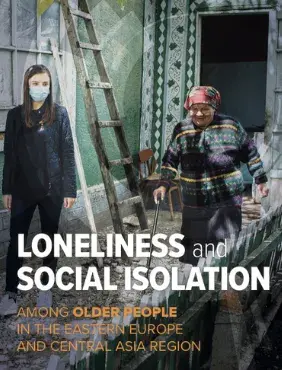As populations in Eastern Europe and Central Asia are ageing rapidly, there is increased attention on the loneliness and social isolation of older people. The COVID-19 pandemic, and the measures taken by governments to contain it, have disproportionately affected older people, among other population groups, and have exacerbated social isolation and loneliness for many.
This survey report, therefore, comes at an opportune time. It is based on a survey conducted during the pandemic and thus captures the effects COVID-19 has had on loneliness and social isolation. It is published at a time when, perhaps, there is greater receptiveness among policymakers and the general public to improve the well-being and respect for the rights of older people as countries emerge from the pandemic and aim to build back better.
With this report, the United Nations Population Fund (UNFPA) and researchers at University College London hope to contribute to a better understanding of the risk factors leading to loneliness and social exclusion.
One - perhaps surprising - key finding of the survey is that it is not so much a lack of emotional support, but a lack of tangible support for day-to-day tasks and activities that is associated with loneliness.
We hope this—and other findings and recommendations included in the report—will help policymakers, authorities, civil society and individuals provide the support and services older persons need to maintain their physical and mental health and well-being and remain active and engaged in society.
Tackling loneliness in older people is a key element in our efforts to help create societies for all ages.
Alanna Armitage, Director UNFPA Regional Office for Eastern Europe and Central Asia


